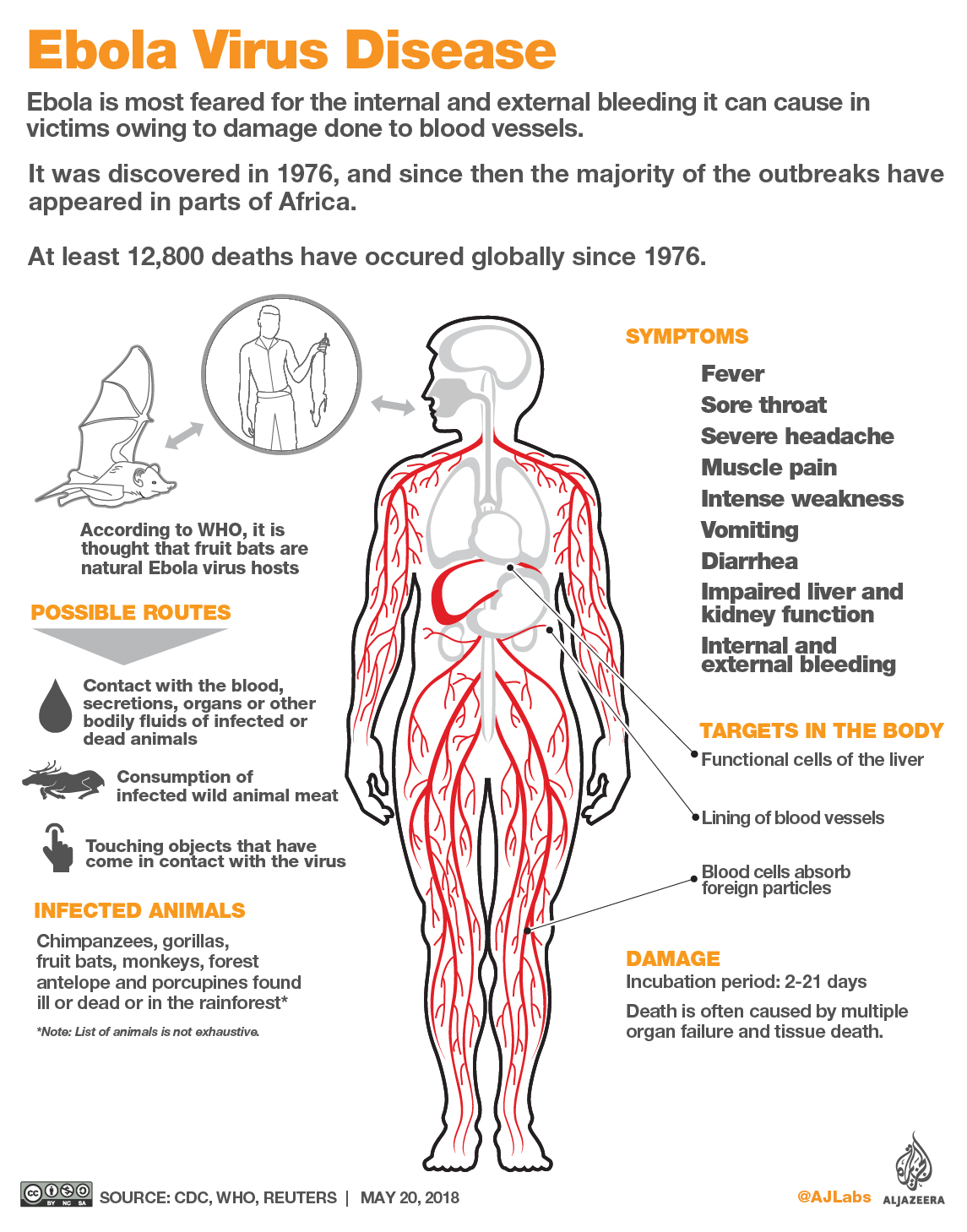DRC: Ebola clinical trials begin as UN warns of newborns infected
Authorities allow clinical trials even as a fresh WHO warning about babies becoming infected raises new fears.

Authorities in the Democratic Republic of the Congo (DRC) have approved clinical trials for four experimental Ebola treatments, even as the deadly disease’s outbreak among newborn babies raises new fears.
The DRC’s health ministry on Saturday said the clinical trials will allow researchers to collect valuable data in a country that is battling its worst ever outbreak of the hemorrhagic fever.
Keep reading
list of 4 itemsUganda declares end of Ebola after 4-month outbreak
Uganda’s Ebola outbreak nearly under control, says Africa CDC
Ebola vaccines produced lasting antibodies during trial: Studies
“Precious information about the effectiveness of the treatments obtained during the clinical trial will allow for the development of these treatments on a wider scale to save more lives,” the ministry said.
The four treatments are mAb114, which was developed by the United States government; ZMapp, an intravenous treatment made by Mapp Biopharmaceutical; Remdesivir, made by Gilead Sciences; and Regeneron’s REGN-EB3.
Recent figures say 151 patients received one of the four drugs. Of those, 76 recovered, 44 died and 31 are still hospitalised – a mortality rate of 37 percent.
In contrast, among those who had not received treatment, the mortality rate was close to 80 percent.
Despite the use of the treatments, as well as an experimental vaccine manufactured by Merck, authorities have struggled to contain the outbreak in the country’s east amid widespread militia violence and community resistance to health workers.
Earlier this month, Ebola containment operations were briefly paused after seven United Nations peacekeepers and 12 DRC soldiers were killed.
Newborns infected
![The WHO has been reaching out to mothers to address the Ebola outbreak crisis [WHO/Junior Kannah/Handout via Reuters]](/wp-content/uploads/2018/11/d8d77b1017724ef1a115b3b4ca778b27_18.jpeg)
Meanwhile, the World Health Organization (WHO) has warned that the disease has also been infecting babies, a population group not usually known to catch Ebola.
In an update published this week, WHO reported 36 new confirmed cases of Ebola, including seven in newborn babies and infants younger than two. Six cases were reported in children aged between two and 17; one case was in a pregnant woman.
While Ebola typically infects adults, as they are most likely to be exposed to the lethal virus, children have been known in some instances to catch the disease when they act as caregivers.
Few cases of Ebola in babies have been reported, but experts suspect transmission might happen via breast milk or close contact with infected parents.
Ebola is typically spread by infected bodily fluids. WHO cited health centres as a source of Ebola transmission, calling the current epidemic “complex and challenging”.
|
|
At least 228 people are believed to have died, with the WHO saying last week that it expects the outbreak to last at least another six months.
The increasing number of cases in children and health workers – 39 health workers have been infected to date – suggests outbreak responders are having major problems stopping the virus.
WHO said the risk of the outbreak spreading to neighbouring countries remains “very high” but it does not recommend travel restrictions.
Uganda, this month, started vaccinating health workers against Ebola in a heavily-travelled border district near the outbreak.
